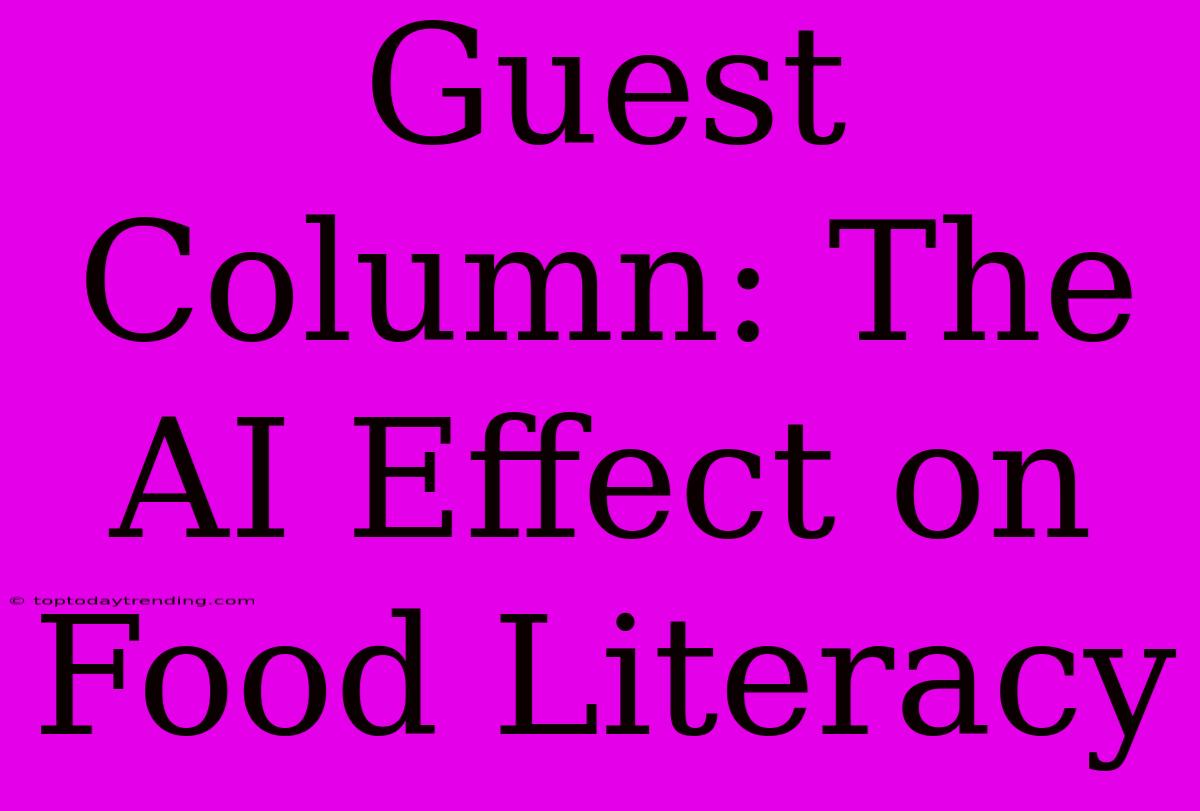Guest Column: The AI Effect on Food Literacy
The world is rapidly changing, and the food industry is no exception. Artificial intelligence (AI) is emerging as a powerful force, impacting everything from farm-to-table practices to our understanding of food itself. This begs the question: How will AI shape our food literacy?
The AI Revolution in Food
AI is already making its mark on the food landscape. Here are some key areas where it's having an impact:
- Precision agriculture: AI-powered sensors and drones monitor crops for diseases and pests, optimizing resource usage and maximizing yield.
- Personalized nutrition: AI can analyze dietary data and create customized meal plans based on individual needs and preferences.
- Food safety and traceability: AI can track the journey of food from farm to fork, improving food safety and reducing food waste.
- Recipe generation and culinary innovation: AI-powered tools can analyze massive datasets of recipes, generating new culinary creations and assisting chefs in their work.
The AI Effect on Food Literacy
While the benefits of AI in food are undeniable, it's crucial to consider its implications for our understanding of food:
1. Increased Accessibility to Information: AI can make information about food more accessible, helping individuals learn about nutrition, food production, and sustainability.
2. Demystifying Food Science: AI can break down complex scientific concepts into digestible information, making food science more accessible to a wider audience.
3. Personalized Learning Journeys: AI can tailor learning experiences to individual needs and interests, making food literacy more engaging and effective.
4. Empowering Consumers: AI can help consumers make informed decisions about food choices, promoting healthy eating habits and supporting sustainable agriculture.
5. Challenges and Concerns: There are potential downsides to consider:
- Data privacy and security: Concerns exist about the collection and use of personal food data.
- Bias and fairness: AI algorithms can perpetuate existing biases, potentially leading to unequal access to information and resources.
- The "Black Box" Effect: The complexity of AI models can make it difficult to understand how they arrive at their conclusions, raising questions about transparency and accountability.
The Future of Food Literacy:
AI is a powerful tool that can revolutionize our understanding of food. It has the potential to enhance food literacy and empower individuals to make informed decisions about their diets and support sustainable food systems. However, it's crucial to address ethical concerns, promote transparency, and ensure equitable access to AI-powered tools.
By embracing the potential of AI while navigating its challenges, we can build a future where food literacy is accessible, engaging, and empowers us to make informed and ethical choices about what we eat.

